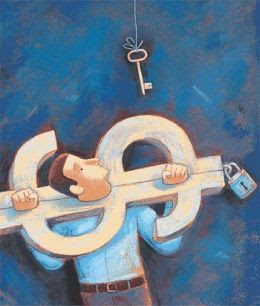Ylan Q. Mui
Washington Post
Atlanta entrepreneur Mike Mondelli has access to more than a billion records detailing consumers’ personal finances — and there is little they can do about it.
The information collected by his company, L2C, comes from thousands of everyday transactions that many people do not realize are being tracked: auto warranties, cellphone bills and magazine subscriptions. It includes purchases of prepaid cards and visits to payday lenders and rent-to-own furniture stores. It knows whether your checks have cleared and scours public records for mentions of your name.
Pulled together, the data follow the life of your wallet far beyond what exists in the country’s three main credit bureaus. Mondelli sells that information for a profit to lenders, landlords and even health-care providers trying to solve one of the most fundamental questions of personal finance: Who is worthy of credit?
Yet almost no one realizes these files exist until something goes wrong.
Federal regulations do not always require companies to disclose when they share your financial history or with whom, and there is no way to opt out when they do. No standard exists for what types of data should be included in the fourth bureau or how it should be used. No one is even tracking the accuracy of these reports. That has created a virtually impenetrable system in which consumers, particularly the most vulnerable, have little insight into the forces shaping their financial futures.
Arkansas resident Catherine Taylor didn’t learn about the fourth bureau until she was denied a job at her local Red Cross several years ago. Her rejection letter came with a copy of her file at a firm called ChoicePoint that detailed criminal charges for the intent to sell and manufacture methamphetamines. The information was incorrect — she says the charges were for another woman with the same name and birth date — but it has haunted her ever since.
Taylor said she has identified at least 10 companies selling reports with the inaccurate personal and financial information, wrecking her credit history so badly that she says she cannot qualify to purchase a dishwasher at Lowe’s. Taylor must apply for loans under her husband’s name and has retained an attorney to force the firms to correct the record. She has settled one case, and a trial in another is expected next week.
“Everything went to hell in a handbasket from then on out,” Taylor said. “I can’t be the watchdog all the time.”
‘Black box’ of data
A credit score is like a financial driver’s license. It serves not only as proof of identity and a certain competency behind the wheel, but also as a passport to a world beyond your doorstep. A home, a car, a college education — all are financed by lenders that rely on the score to determine who gets credit and how much they pay for it.
linkwithin_text=’Related Articles:’



Be the first to comment on "Little-known firms tracking data used in credit scores"